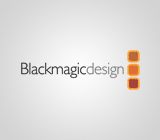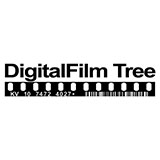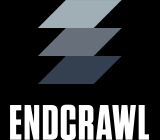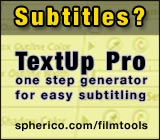|
|
Forum List
>
Café LA
>
Topic
Timecode Audio Signal
Posted by blackbudget
|
Timecode Audio Signal October 04, 2006 01:18AM |
Registered: 17 years ago Posts: 6 |
|
Re: Timecode Audio Signal October 04, 2006 10:47AM |
Registered: 17 years ago Posts: 53 |
Hi:
How about a Horita timecode reader?
Most any synchronization box will do this.
The Digidesign boxes would be the SMPTE Slave Driver(SSD), the Universal Slave Driver(USD), or their current version of the same thing called SYNC I/O.
There are also Evertz, MOTU, Fostex, old OPCODE boxes... many others. Depends on what you need to do with it once you've got it.
Google "Timcode Reader".
tc
How about a Horita timecode reader?
Most any synchronization box will do this.
The Digidesign boxes would be the SMPTE Slave Driver(SSD), the Universal Slave Driver(USD), or their current version of the same thing called SYNC I/O.
There are also Evertz, MOTU, Fostex, old OPCODE boxes... many others. Depends on what you need to do with it once you've got it.
Google "Timcode Reader".
tc
|
Re: Timecode Audio Signal October 04, 2006 10:50AM |
Registered: 17 years ago Posts: 53 |
|
Re: Timecode Audio Signal October 05, 2006 01:07AM |
Registered: 17 years ago Posts: 6 |
|
Re: Timecode Audio Signal October 05, 2006 01:33AM |
Registered: 17 years ago Posts: 53 |
|
Re: Timecode Audio Signal October 05, 2006 01:49AM |
Registered: 17 years ago Posts: 6 |
|
Re: Timecode Audio Signal October 05, 2006 01:55AM |
Registered: 17 years ago Posts: 53 |
...So bounce it mixed from PT as an AIF and lay it into your FCP timeline.
Make sense to you?
LTC isn't of great value in the digital domain, though there are times...
I feel like I'm missing a whole lot of info about what it is you are trying to accomplish.
If you're doing sound work in PT, then bounce a reference QT out of FCP and import it into PT.
If you've done the sound work, bounce an AIF and import it into PT.
Good luck
tc
Make sense to you?
LTC isn't of great value in the digital domain, though there are times...
I feel like I'm missing a whole lot of info about what it is you are trying to accomplish.
If you're doing sound work in PT, then bounce a reference QT out of FCP and import it into PT.
If you've done the sound work, bounce an AIF and import it into PT.
Good luck
tc
|
Re: Timecode Audio Signal October 05, 2006 02:03AM |
Registered: 17 years ago Posts: 6 |
|
Re: Timecode Audio Signal October 05, 2006 09:24AM |
Registered: 17 years ago Posts: 460 |
|
Re: Timecode Audio Signal October 05, 2006 11:12AM |
Moderator Registered: 17 years ago Posts: 10,771 |
If you're doing a sound mix, why not just put in a 2-pop?
Or are you mixing individual clips in your edit?
Using timecodes to deal with final mixes seems like a wasteful, redundant step to me. Rather than deal with the timecodes, I might suggest just re-syncing the sound clips using sound spikes and waveforms.

www.derekmok.com
Or are you mixing individual clips in your edit?
Using timecodes to deal with final mixes seems like a wasteful, redundant step to me. Rather than deal with the timecodes, I might suggest just re-syncing the sound clips using sound spikes and waveforms.

www.derekmok.com
|
Re: Timecode Audio Signal October 05, 2006 11:17AM |
Registered: 17 years ago Posts: 53 |
blackbudget:
Are you trying to conform existing mixes and picture edits? Are you trying to sync up 2-system dailies from a shoot? Something else entirely?
> The protools session consists of several tracks and pieces of audio, with each piece having it's > own timecode.
Said timecode comes from where? An audio or video deck? A generator? An EDL? Is the alleged timecode in sync with the PT timeline?
> Those are the timecodes I need to see in FCP, since they are tied to the related video.
Related in what way? Are they supposedly sync? Is there some sort of timecode offset you need to effect inorder to achieve sync? Are you trying to make sync at all?
Please forgive the following diatribe if you already know this stuff (but if you did, I don't think you'd be asking questions in this way):
FCP and PT will not "lock to code" in the old fashioned (did I say that!? :-p ) master/slave sense without some hardware you haven't mentioned (a nine-pin board, a synchronizer, stuff like that).
In order to perform any meaningful editorial on the audio or video, you need to have the media in one program. Either import a ref QT into PT or the audio parts and pieces into FCP as mentioned earlier.
LTC is generally used to synchronize an audio deck ("source" or "slave", one that is capable of it!) to a picture deck( "master" or with a capturing workstation (also a "master"
or with a capturing workstation (also a "master" . Another reason for LTC is to make a tape transport play at a predictable and repeatable speed.
. Another reason for LTC is to make a tape transport play at a predictable and repeatable speed.
Since your audio is already in PT or FCP (I'm not clear about which one- and with LTC on an audio track!? How'd you arrive at that method?) you either skipped the step of locking up your source deck to PT when you captured/transfered, or you somehow sent code from a camera/Smart Slate to a non-synci audio deck during the shoot with the intention of locking up later, and then skipped the sync transfer. If it's the first case, recapture "in sync" using a sync box between the deck/workstation system. Second case, I'd try to import a ref QT into PT and sync by hand if it's a short piece.
The first case rquires two rigs.
If you have a lot if material, scrub the session and start over using a better workflow.
Good luck.
tc
Are you trying to conform existing mixes and picture edits? Are you trying to sync up 2-system dailies from a shoot? Something else entirely?
> The protools session consists of several tracks and pieces of audio, with each piece having it's > own timecode.
Said timecode comes from where? An audio or video deck? A generator? An EDL? Is the alleged timecode in sync with the PT timeline?
> Those are the timecodes I need to see in FCP, since they are tied to the related video.
Related in what way? Are they supposedly sync? Is there some sort of timecode offset you need to effect inorder to achieve sync? Are you trying to make sync at all?
Please forgive the following diatribe if you already know this stuff (but if you did, I don't think you'd be asking questions in this way):
FCP and PT will not "lock to code" in the old fashioned (did I say that!? :-p ) master/slave sense without some hardware you haven't mentioned (a nine-pin board, a synchronizer, stuff like that).
In order to perform any meaningful editorial on the audio or video, you need to have the media in one program. Either import a ref QT into PT or the audio parts and pieces into FCP as mentioned earlier.
LTC is generally used to synchronize an audio deck ("source" or "slave", one that is capable of it!) to a picture deck( "master"
 or with a capturing workstation (also a "master"
or with a capturing workstation (also a "master" . Another reason for LTC is to make a tape transport play at a predictable and repeatable speed.
. Another reason for LTC is to make a tape transport play at a predictable and repeatable speed.
Since your audio is already in PT or FCP (I'm not clear about which one- and with LTC on an audio track!? How'd you arrive at that method?) you either skipped the step of locking up your source deck to PT when you captured/transfered, or you somehow sent code from a camera/Smart Slate to a non-synci audio deck during the shoot with the intention of locking up later, and then skipped the sync transfer. If it's the first case, recapture "in sync" using a sync box between the deck/workstation system. Second case, I'd try to import a ref QT into PT and sync by hand if it's a short piece.
The first case rquires two rigs.
If you have a lot if material, scrub the session and start over using a better workflow.
Good luck.
tc
|
Re: Timecode Audio Signal October 05, 2006 12:27PM |
Registered: 17 years ago Posts: 6 |
Thanks for your help everyone. I think people are looking a little too far into this. It is probably less complicated than you think.
Avid Xpress and Media Composer (Meridien) have a feature that lets you read timecode audio.
This is what you do in Avid Xpress with it:
"Digitize your clips normally. Make sure you are digitizing the audio track which contains the audio timecode information. When you are finished digitizing, highlight the appropriate clips in the bin and select "Read Audio Timecode" from the Special menu. This Timecode information will work fine with EDL's, but you will not be able to batch digitize with it at anytime."
I was wondering if FCP has this same capability.
Avid Xpress and Media Composer (Meridien) have a feature that lets you read timecode audio.
This is what you do in Avid Xpress with it:
"Digitize your clips normally. Make sure you are digitizing the audio track which contains the audio timecode information. When you are finished digitizing, highlight the appropriate clips in the bin and select "Read Audio Timecode" from the Special menu. This Timecode information will work fine with EDL's, but you will not be able to batch digitize with it at anytime."
I was wondering if FCP has this same capability.
Sorry, only registered users may post in this forum.



 All the news now and in your digital future
All the news now and in your digital future